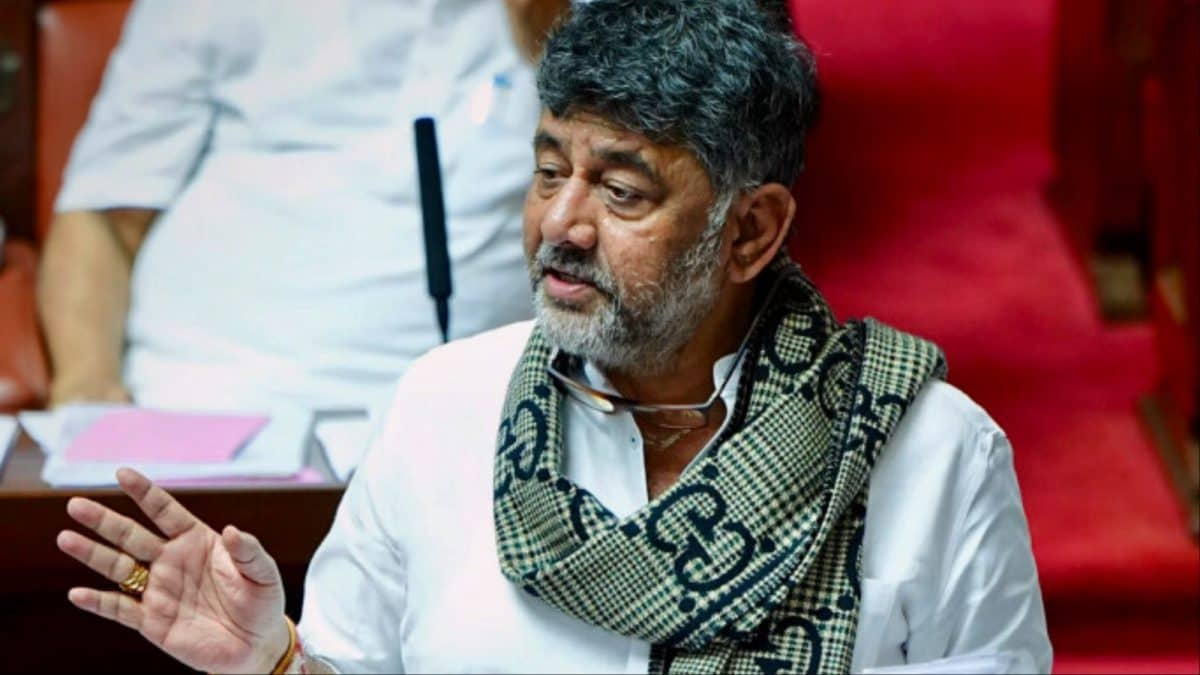ARTICLE AD BOX
Last Updated:August 25, 2025, 10:00 IST
The rollback of the US de minimis exemption has triggered global postal suspensions, with India and several European countries pausing parcel deliveries

US Customs and Border Protection data, cited by AP, shows that in 2024 alone more than 1.36 billion parcels worth $64.6 billion entered the US. (Image: Reuters)
From India Post to Royal Mail, some of the world’s biggest postal networks have begun pausing shipments to the United States. The sudden disruption is linked to US President Donald Trump’s order ending a decades-old duty-free allowance for small parcels.
The rule change, which takes effect on 29 August 2025, has triggered confusion among postal operators and businesses worldwide. Here is a detailed look at what has changed, why services are being suspended, and what it means for trade and consumers.
What Has Changed In US Import Rules?
At the heart of the disruption is the scrapping of the de minimis exemption, a system that allowed packages valued under $800 to enter the US without customs duty. First introduced in the 1930s to cut paperwork, the exemption was raised to its current level of $800 during Barack Obama’s presidency in 2016.
The policy became critical for the boom in e-commerce, enabling American shoppers to order inexpensive items from abroad without paying extra at customs. US Customs and Border Protection data, cited by AP, shows that in 2024 alone, more than 1.36 billion parcels worth $64.6 billion entered the US under this rule.
But Trump’s executive order, signed on 30 July, abolishes the exemption for all countries. The Independent reported that the White House has described the rule as a “catastrophic loophole" exploited by low-cost foreign retailers and even used to channel synthetic drugs into the country. China and Hong Kong were removed from the scheme in May; the latest order extends that removal to the rest of the world.
What The New Tariffs Look Like
From Friday, virtually every parcel will attract duties. As reported by The Washington Post, the charges depend on the tariff bracket of the exporting country:
- Countries with tariff rates of 15 per cent or lower will face an $80 surcharge per parcel.
- Those in the 16–25 per cent range will see $160 added per parcel.
- Nations with tariffs above 25 per cent will face the steepest levy — $200 per parcel.
India, which has already been hit with Trump’s 50 per cent tariff in July, falls into the highest band. That means even parcels worth just a few dollars could end up attracting duties several times their value.
Only letters, books, documents and small gifts below $100 remain duty-free. Courier firms like DHL have already warned that “gift" declarations will face closer scrutiny to prevent misuse.
India’s Move: Postal Suspension From Today
On 24 August, the Department of Posts announced that it would stop carrying most goods to the US from Monday, while still accepting letters, documents, and low-value gifts.
The department explained it had no choice because US Customs and Border Protection had issued only limited guidance, leaving uncertainty over who would collect duties and how payments would be remitted. Financial Express reported that CBP released preliminary instructions only on 15 August, giving foreign postal agencies little time to prepare.
For Indian exporters, especially small businesses and e-commerce sellers, the change is a heavy blow. Items that previously reached American customers without added costs will now either be held up at customs or face tariffs far higher than their value.
Europe Caught In The Same Bind
European operators have taken similar decisions. According to the AP, countries including Germany, Denmark, Belgium and Sweden halted shipments on 23 August. Austria and France have followed from today. The UK’s Royal Mail will stop on Tuesday, giving itself two extra days so that parcels already in transit can clear before the duties begin. Italy’s Poste Italiane and the Nordic logistics firm PostNord plan to suspend services from Saturday.
France’s La Poste said there was no time to reconfigure its IT systems to match the new requirements, while Belgium’s bpost went further, warning that under the new rules, all import duties must be prepaid, pushing the cost directly onto senders or consumers.
The European industry body PostEurop, representing over 50 postal services, has cautioned that if no clarity emerges from Washington before 29 August, suspensions could spread to nearly all its members.
Why Postal Services Say They Have No Choice
Across the board, operators point to the lack of clear instructions from Washington. The Independent quoted DHL — Europe’s largest shipping provider — as saying that from 23 August it would “no longer be able to accept and transport parcels and postal items containing goods from business customers" to the US. The company added that “key questions remain unresolved, particularly regarding how and by whom customs duties will be collected, what additional data will be required, and how the data transmission to US Customs and Border Protection will be carried out."
France’s La Poste echoed the complaint, saying the US had provided no time to update systems. In the Netherlands, PostNL told AP that customers should send parcels immediately if they wanted them to arrive before the new duties began.
For public postal networks that handle massive parcel volumes, the risk is that shipments could be stranded at American customs without a proper duty mechanism. As a result, suspending deliveries until rules are clarified is seen as the only safe option.
Will Private Couriers Still Deliver?
Yes, but not without added costs. Companies like DHL Express and FedEx are still accepting shipments. The difference is that private couriers already have digital systems for customs declarations and duty payments. That makes compliance easier, though customers will still face the new tariffs.
This could shift business from public postal services to private couriers, but at a significantly higher price point for senders.
Broader Impact On Trade And Consumers
For American buyers, the end of duty-free imports means higher prices for everyday items previously ordered cheaply from abroad. For sellers in India and Europe, especially small-scale exporters, the economics of shipping to the US may no longer work.
The scale of disruption is significant. In 2024, billions of dollars’ worth of small parcels entered under de minimis. Now, with tariffs as high as $200 per item, businesses must either absorb the cost, pass it on to customers, or stop serving the US market altogether.
The move also reflects the Trump administration’s broader trade strategy. After imposing steep tariffs on steel, aluminium, and Indian goods, Washington is now extending the fight to cross-border e-commerce.
Is This A Permanent Ban?
Not necessarily. Postal operators have repeatedly said their suspensions are temporary. The hope is that once the US clarifies who collects duties, how payments are made, and how customs data must be transmitted, services can resume.
Botond Szebeny, secretary-general of PostEurop, told Financial Express that nobody intends for this to become a permanent embargo. “Everybody hopes that there will be a solution soon," he said.
Until then, however, the world’s busiest postal routes into the United States are effectively stalled.
Conclusion
What began as a technical change to US customs rules has quickly snowballed into a major disruption of global postal services. India, the UK, France, Germany, Italy, and others have all hit pause because Washington has ended an exemption that kept low-value parcels flowing freely.
For now, only letters, books and small gifts under $100 will escape duties. Everything else risks either being delayed or hit with tariffs far greater than their worth.

Karishma Jain, Chief Sub Editor at News18.com, writes and edits opinion pieces on a variety of subjects, including Indian politics and policy, culture and the arts, technology and social change. Follow her @kar...Read More
Karishma Jain, Chief Sub Editor at News18.com, writes and edits opinion pieces on a variety of subjects, including Indian politics and policy, culture and the arts, technology and social change. Follow her @kar...
Read More
- Location :
- First Published:
August 25, 2025, 09:59 IST
News explainers Why India, UK, France Have Suspended Postal Deliveries To The US And What It Means For You
Disclaimer: Comments reflect users’ views, not News18’s. Please keep discussions respectful and constructive. Abusive, defamatory, or illegal comments will be removed. News18 may disable any comment at its discretion. By posting, you agree to our Terms of Use and Privacy Policy.
Read More



.png)
.png)
.png)
















 4 hours ago
5
4 hours ago
5








 English (US) ·
English (US) ·